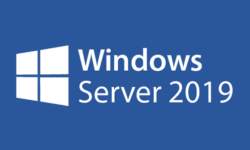Error: “E: is not accessible. The parameter is incorrect.”

Have you run into a situation where you try to access your USB hard drive and get the following error:
E: is not accessible. The parameter is incorrect.
where E: is the drive letter of your external USB hard disk.
You may also get the access is denied error. The drive remains inaccessible even if you try to hook it up to other computers.
A friend of mine ran into this situation and got a quote of $500-$800 from various local data recovery companies in the Seattle area. When she brought the 3.5″ external 320 GB Seagate USB drive to me as a last ditch effort before coughing up hundreds of dollars, the first thing I did was connect to my Windows 7 computer to see what kind of error I would get. I was able to see the drive but got the Access is denied error. I decided to use the CHKDSK utility. I figured if that didn’t work then I will look into using some software that can possibly repair the drive because I assumed there were lost clusters, or other disk errors that were making the drive unreadable.
I ran CHKDSK G: /F /R /X, where G: was the drive letter for the USB external drive on my computer.
/F fixes the error on the disk
/R Locates bad sectors and recovers readable information
/X Forces the volume to dismount if necessary
You could also run CHKDSK without the /F parameter to see if there are corrupted files before fixing them. Then you can run CHKDSK with /F parameter to actually fix the lost clusters, along with /R parameter to locate the bad sector and recover readable information from the hard disk.
It took several hours but luckily CHKDSK found about 1.6 GB of data in over 5000 recovered files. I let CHKDSK convert the lost chains to files , fix cross-linked files by copying them to other locations, and rename the duplicate files in the folders. I was able to recover almost all of the data (about 50 GB, with over 40,000 files), except for 8 files. I reformatted the drive with NTFS, which is much more reliable and secure file system than the original FAT32.



Hello there, I am having issues or the lack of knowledge in creating an interface with Microsoft Office Components and SharePoint 2003. Can someone give me some guidance and knowledge in how it works and how to configure them.
Thanks.
Chris,
Your question is not related to the topic on hand (access denied error on USB hard drives) but if I understand your question correctly I believe you are asking for some resources on integrating Office 2003 and SharePoint 2003. You didn’t say Office 2003 but I am assuming that’s what you have (Office 2007 integrates very well with SharePoint). Here are a few resources:
Here’s a link for workspaces:
http://articles.techrepublic.com.com/5100-10878_11-5069312.html
Here’s a link for the research features:
http://weblogs.asp.net/soever/archive/2004/01/28/63576.aspx
Here are some e-learning resources for integration:
http://www.training-classes.com/learn/_k/s/h/a/sharepoint_portal_server_2003/_t/online/
Good luck!
Hi,
I tried what you said but got message” “The disk does not have enough space to replace bad clusters
detected in file 67 of name.” Please help!
Anil,
Delete some files to create enough space and run CHKDSK again.
Hello Zubair,
I actually received a similar message to Anil when running chkdsk /f. I got “Insufficient disk space to correct errors in Index $I30 of file 8776.” How do I delete files from the hard drive if I can’t access it via Windows Explorer and how can I know how much to actually to delete to clear enough space for the repair to take place?
Thanks in advance!
Jeff,
What results do you get when you run CHKDSK without the “/F” switch? What is the drive letter of the drive that you can’t access in Windows Explorer?
You can go to the properties of the drive and on the General tab click Disk Cleanup. Then you can select the files to delete. You will see temporary files, thumbnails, Recycle Bin, etc. On a typical computer you can select every checkbox and click OK to delete the files. If that doesn’t work then I can tell you other ways to get more disk space.
Thanks from Turkey. You really helped me save valuable data. Thank you very much.
I now got data error .